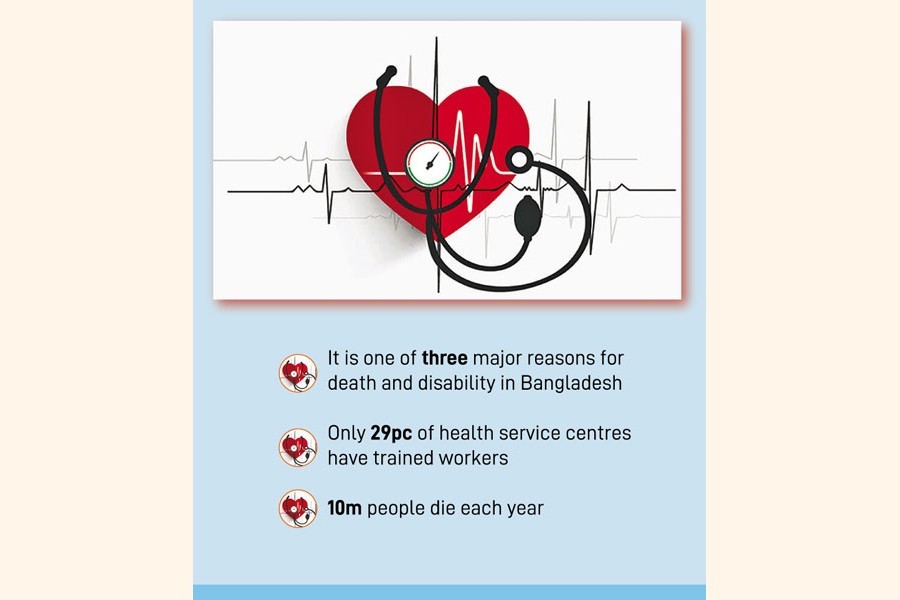Fifty-one per cent of women and 67 per cent of men with hypertension in Bangladesh do not know they have high blood pressure, public health experts said quoting a study.
One in every five or 21 per cent adults in Bangladesh is suffering from hypertension, they said laying emphasis on mass awareness, affordability of medications and treatment services by more budget allocations.
Only 29 per cent of health service centres have trained workers, they said.
Hypertension causes increased risks of cardiovascular diseases and related mortality manifold.
Public health experts shared such information at two consecutive two-day workshops for journalists titled "Hypertension and Heart Health" held in the city from March 28-31.
The workshops were organized by research and advocacy organization PROGGA (Knowledge for Progress) with the support from Global Health Advocacy Incubator (GHAI).
Fifty-one journalists from print and electronic media participated in the workshops.
Referring to 'Bangladesh NCD Steps Survey, 2018', experts said less than one in every seven people has been able to keep their condition under control by taking medications.
According to the data of Global Burden of Disease Study (GBD) 2019, hypertension is one of the three major reasons for death and disability in Bangladesh.
The workshop informed that hypertension control has been prioritized in a number of government policies and plans in Bangladesh but lacks any nationwide programme.
Following the global targets for preventing non-communicable diseases, the government has set a national target of 25 per cent relative reduction of raised blood pressure prevalence by 2025.
Experts suggested avoiding intake of excessive salt, abstaining from foods laden with trans-fats, abstaining from using tobacco and alcohol, reducing excessive body weight or obesity, and keeping physically active.
Alarmingly, more than 10 million people die each year from hypertension which is more than all communicable diseases combined.
Syed Mojibul Huq, Additional Secretary, Health Service Division, Prof. Dr. Mohammad Robed Amin, Line Director of NCDC Program, Directorate General of Health Services (DGHS), Prof Dr. Sohel Reza Choudhury, Head of Department of Epidemiology & Research, National Heart Foundation, Dr. Syed Mahfuzul Huq, National Professional Officer (NCD), World Health Organization Bangladesh, Dr. Md. Khalequzzaman, Associate Professor, Department of Public Health and Informatics at Bangabandhu Sheikh Mujib Medical University (BSMMU), Prof Dr. Malay Kanti Mridha, Director of Center for Non-Communicable Disease and Nutrition, BRAC James P Grant School of Public Health, Muhammad Ruhul Quddus, Bangladesh Country Lead, GHAI; Zahirul Alam, Head of News and Current Affairs, NTV and ABM Zubair, Executive Director, PROGGA were present at the workshops.


